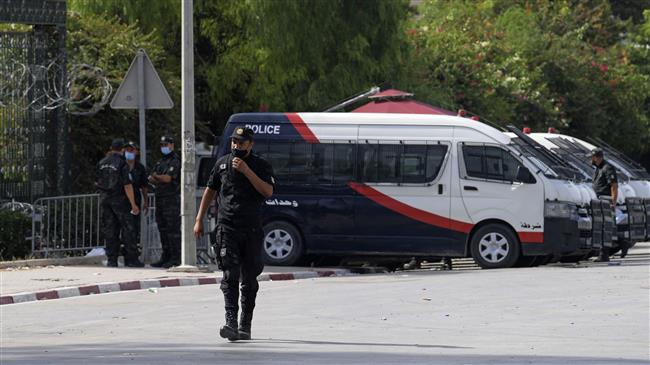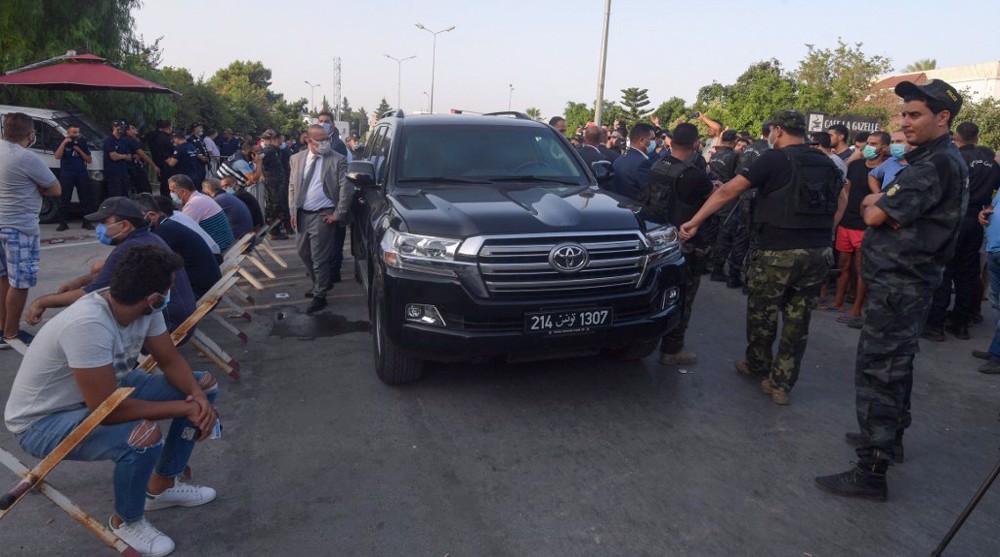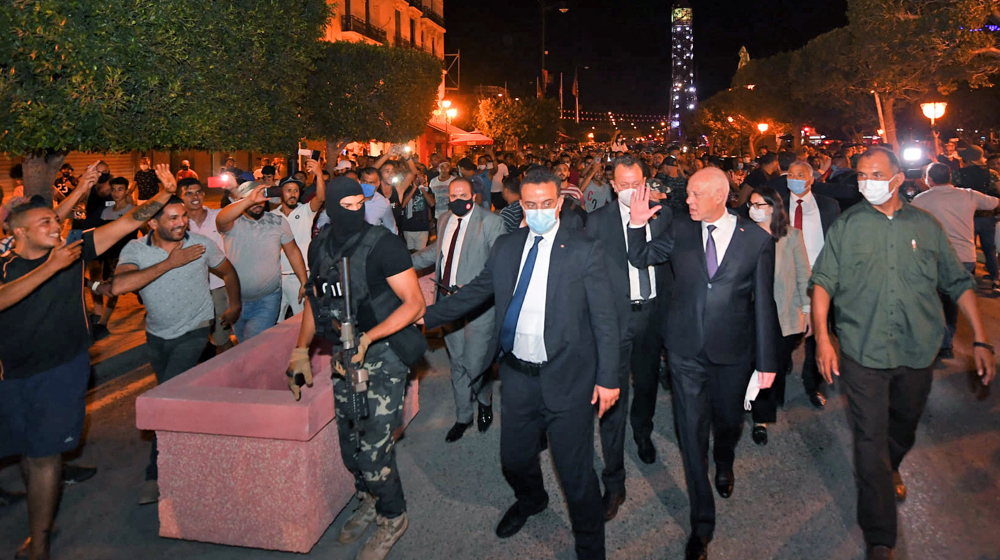Tunisia’s biggest political party urges dialogue to resolve political crisis
Tunisia’s biggest political party, Ennahda, has called for national dialogue to get the country out of the political crisis sparked by the president’s dismissals of the government and parliament.
In a reversal of previous calls to its supporters to take to the streets against President Kais Saied’s actions, Ennahda -- the lead party in Tunisia’s fractious ruling coalition -- urged dialogue and efforts to avoid civil strife.
“The movement... calls on all Tunisians to increase solidarity, synergy and unity and to confront all calls for sedition and civil strife,” it said in a statement on Tuesday.
Ennahda also told supporters through party branches not to resume a sit-in outside the parliament and to avoid protests.
Tunisia, the cradle of the Arab Spring protests a decade ago, was thrust into a constitutional crisis on Sunday after Saied sacked Prime Minister Hichem Mechichi and suspended the country’s parliament for 30 days.
Saied said he would be running the country’s executive affairs in cooperation with a premier of his own choosing in the wake of violent protests across the North African nation over the government’s handling of the COVID-19 pandemic and the country's ailing economy.
Ennahda said at the time that the move was “a coup d’etat” against the 2011 revolution that ousted former Western-backed ruler Zine El Abidine Ben Ali, as well as against the country's constitution. The party called on all its supporters to protest against Saied's decision.
Earlier in the day, the Tunisian president dismissed more officials amid political crisis, including Defense Minister Ibrahim Bartaji and Hasna Ben Slimane, the acting justice minister.
Saied also urged Tunisians to remain calm and not to take to the streets, saying, “The most danger a nation can face is internal explosion.”
The Tunisian president had on Monday imposed a night curfew for a month after clashes between the supporters and opponents of his decision left several people injured.
Years of paralysis, corruption, declining state services and growing unemployment had agitated many Tunisians on their political system before the COVID-19 pandemic smashed the economy last year and infection rates surged this summer.
The Tunisian president and parliament were both elected in separate popular votes in 2019 while the prime minister took office last summer, with Saied swearing to overhaul a complex political system plagued by corruption.
Yemeni armed forces down F-18 fighter jet, repel US-UK attack: Spokesman
Iran warns against US-Israeli plot to weaken Muslims, dominate region
VIDEO | Public uproar in US against Israeli regime
‘Ghost town’: 70% of Jabalia buildings destroyed by Israel
Mother’s Day: Sareh Javanmardi’s inspiring journey as Paralympic champion and mother
Russia downs over 40 Ukrainian drones as Putin vows 'destruction' on Kiev
VIDEO | Yemen: A bone in Israeli neck
D-8’s role in Iran’s economy after Cairo summit












 This makes it easy to access the Press TV website
This makes it easy to access the Press TV website